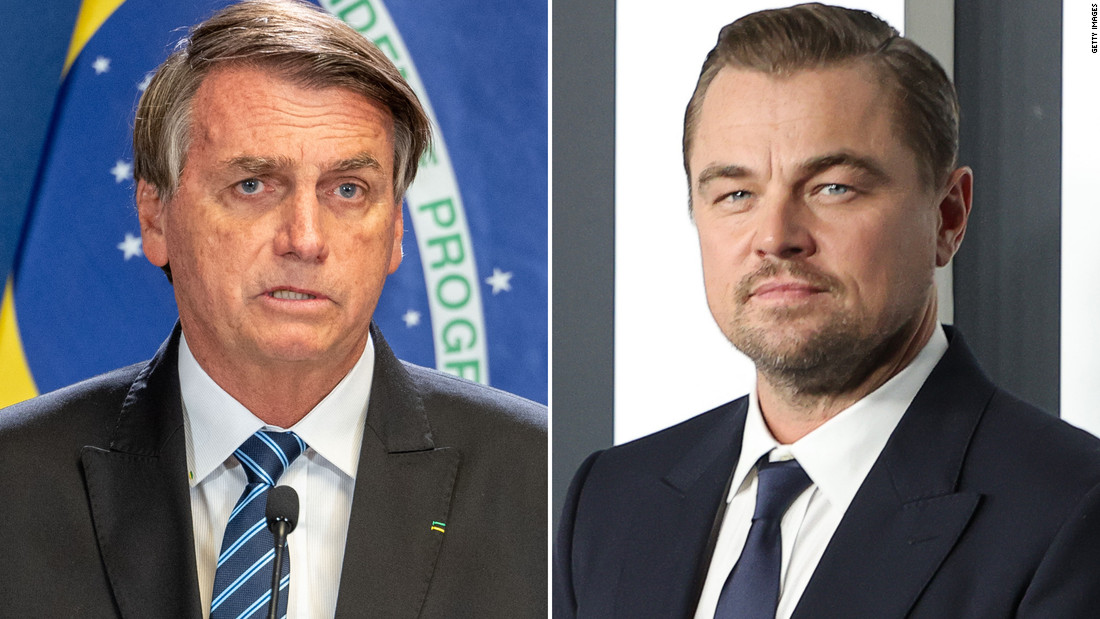
Bolsonaro made his comments on Tuesday to a group of supporters who were gathering in front of Alvorada Palace, the official presidential residence.
“Now, DiCaprio has to know that it was the very president of the World Trade Organization who said that without Brazilian agribusiness, the world would be hungry,” Bolsonaro said.
Bolsonaro’s response came after a series of tweets by DiCaprio — a staunch environmental and climate activist — over the past few days, in which he urged young Brazilians to register to vote in the October elections.
He then encouraged young people to seek more information about registration on the website Olha o Barulhinho, which offers step-by-step instructions on how to enroll.
The following day, President Jair Bolsonaro quoted DiCaprio’s tweet saying, “Thanks for your support, Leo! It’s really important to have every Brazilian voting in the coming elections. Our people will decide if they want to keep our sovereignty on the Amazon or be ruled by crooks who serve special foreign interests. Good job in The Revenant.”
In Brazil, voting is not mandatory for people between the ages of 16 and 18. Many local artists and celebrities have asked people to register and vote in the October presidential election.
The Leonardo DiCaprio Foundation “supports projects around the world that build climate resiliency, protect vulnerable wildlife and restore balance to threatened ecosystems and communities.” He is also a United Nations representative on climate change.
Destruction of the world’s largest rainforest has surged since President Jair Bolsonaro took office in 2019 and weakened environmental protections, arguing that they hinder economic development that could reduce poverty in the Amazon region.
According to the INPE report, 941.34 square kilometers (363 square miles) of forest had been destroyed between January and March this year. That’s the largest amount recorded for those months since the institute began monitoring deforestation rates in 2016. The area cleared is nearly the size of Dallas, Texas.
Researchers observed a 64% increase from the same time period last year, when 573.29 square kilometers (221 square miles) were cleared.